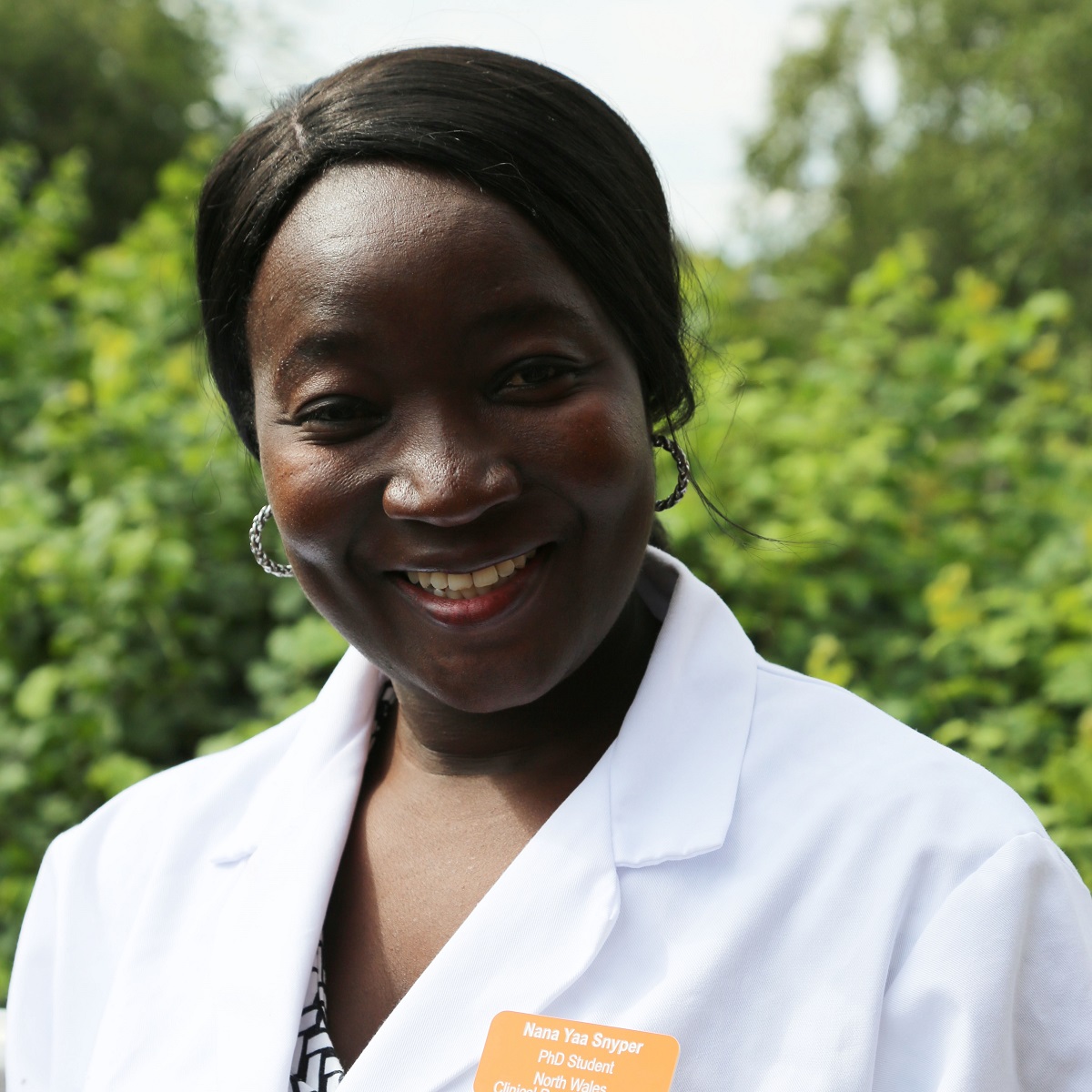Academic secures grant for biomedical research

A Wrexham Glyndwr University researcher has been awarded a grant of almost £3,500 by a leading professional body for a project examining the role of biomarkers linked to prostate disorders.
Nana Yaa Frempomaa Snyper, who is currently studying for a PhD in Biomedical Science at the university, has been awarded the £3450 grant for the project by the Institute of Biomedical Science. The project will look into how biomarkers – biological indicators used to assess conditions – can be linked to health changes in patients who have had surgical treatment for prostate disorders.
One area that the study will examine is whether changes in biomarkers can be used to detect complications which can develop after operations. It is hoped that by the end of the study, findings can be used to provide blood and/ or urine tests which can then be used to predict the risk of prostate patients developing post-operative complications.
Nana said: “This research is important and could help relieve some of the strain on healthcare systems around the world.
“It aims to look at what changes happen with selected biomarkers after prostate surgeries – and test the hypothesis that these changes are associated with the development of post-operative complications.
“Findings from this study will provide a test or panel of tests which could be used to predict the risk of patients developing post-operative complications. Specific changes to the management of patients’ treatment could then be made to improve outcomes for patients.
“I would expect such changes to benefit both patients and healthcare providers, to reduce treatment costs, and to reduce the number of people being re-admitted to hospital as a result of these conditions.”
Helen Archer, who is a Chief Biomedical Scientist based at Royal Glamorgan Hospital in Llantrisant, said: “As an IBMS Council Member, I can say we are delighted at Nana’s achievement.
“With this grant we hope that her research into biomarkers will be able to help improve our knowledge of patients’ healthcare after surgical treatments. We wish Nana all the best with her research, and look forward to reading more about her study in the future.”
The study will be carried out at the North Wales Clinical Research Centre (NWCRC) – which is also offering a series of three postgraduate research qualifications to students from this year.
Professor Stephen Fôn Hughes, the Academic and Scientific Director of the Centre, said: “Nana’s research is fascinating, and we are extremely pleased its worth has been recognised by a grant by the Institute of Biomedical Science – the professional body for Biomedical science and the organisation which accredits the courses offered by the Centre in collaboration with Betsi Cadwaladr University Health Board and Wrexham Glyndwr University.
“The aim of each of these postgraduate programmes is to provide an academic platform, both for postgraduate education and as a place where cutting-edge biomedical and clinical research - like Nana’s - can be carried out.
“Through having a research-active health board, working alongside Glyndwr, our region becomes much more attractive to high calibre clinicians, nurses, midwives and healthcare professionals.”